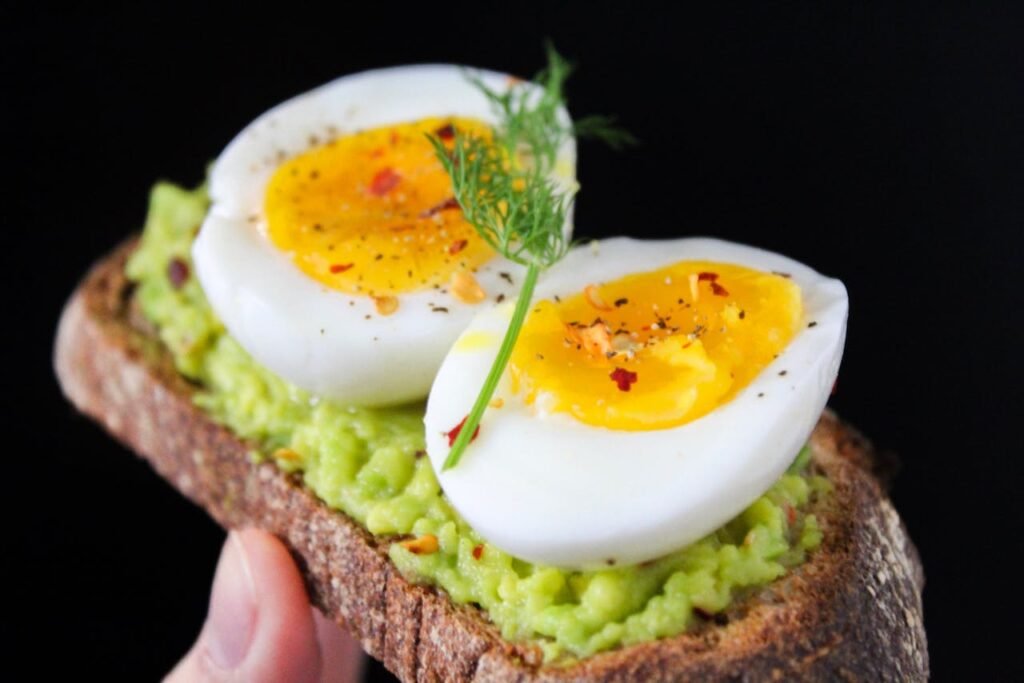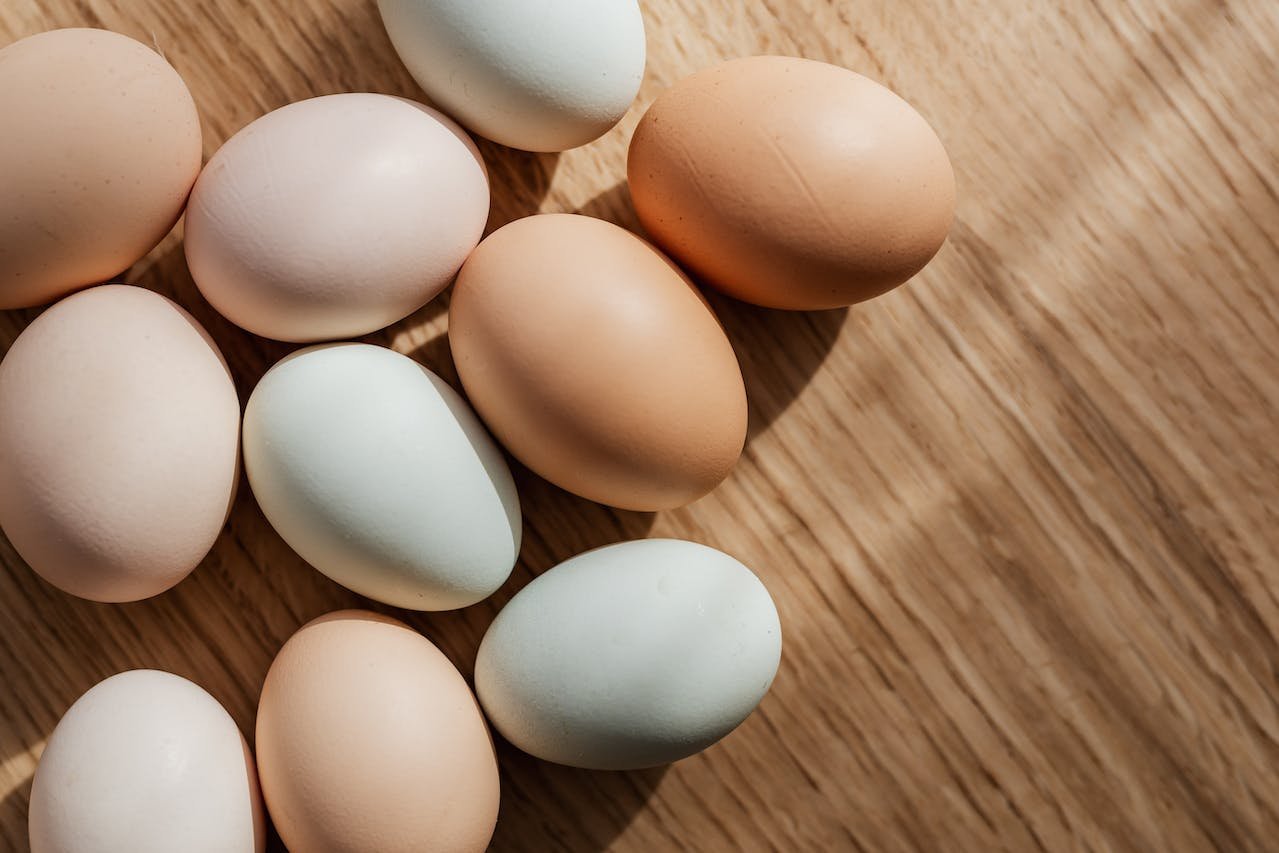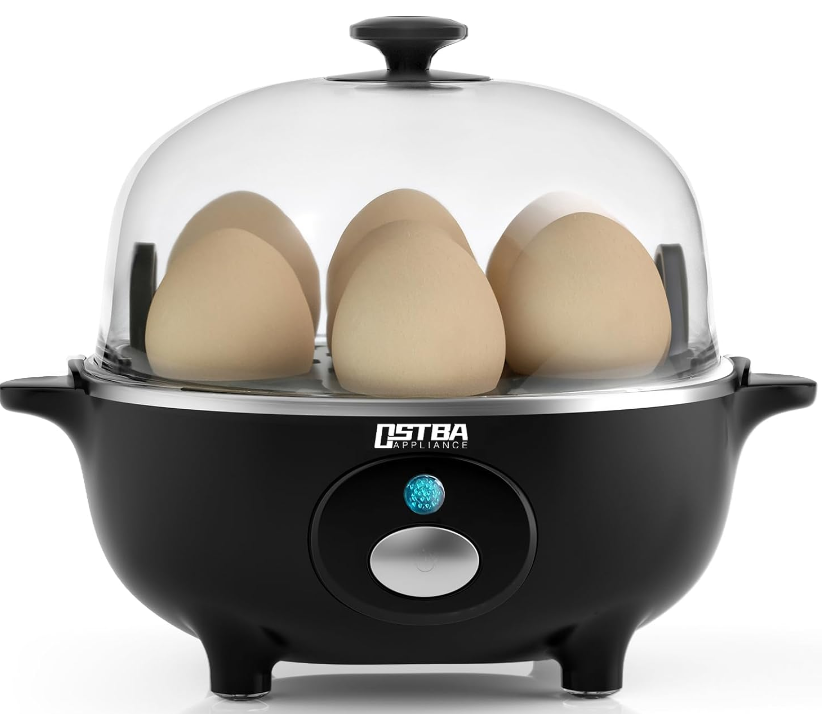Section 1: Demystifying the Science of Boiled Eggs
Boiling eggs, a seemingly simple kitchen task, harbours a fascinating scientific concept – the coagulation of proteins. When an egg is immersed in hot water, its proteins undergo a transformation, changing from their flexible, liquid state to a firm, solid state. This process, known as denaturation, is responsible for the transformation of the egg white from a translucent liquid to a firm, opaque mass. The degree of protein coagulation determines the doneness of the egg, resulting in variations like hard-boiled, soft-boiled, and medium-boiled eggs.
Factors Affecting Egg Doneness
Several factors influence the doneness of a boiled egg:
Cooking Time: The longer an egg is cooked, the more time the proteins have to denature, resulting in a firmer texture. For instance, a hard-boiled egg typically requires about 10-12 minutes of boiling, while a soft-boiled egg requires 3-4 minutes.
Water Temperature: The higher the water temperature, the faster the proteins denature, leading to a faster cooking time. For optimal results, use boiling water, which is around 212°F (100°C).
Egg Size: Larger eggs require a longer cooking time due to their greater mass and volume. Therefore, adjust your cooking time accordingly based on the size of the eggs you are using.
Green Ring: A Curious Phenomenon
A common observation when cooking hard-boiled eggs is the formation of a greenish ring around the yolk. This discoloration, known as the “green ring,” is caused by a reaction between iron sulphide and sulphur compounds present in the egg white. The sulphur compounds are released during cooking and react with the iron in the yolk, producing ferrous sulphide, the green pigment.
Preventing the Green Ring
While completely eliminating the green ring is challenging, several techniques can minimize its appearance:
Acidify the Water: Adding a pinch of salt or vinegar to the boiling water can help prevent the green ring by neutralizing sulphur compounds.
Cold Shock: Immediately after cooking, plunge the eggs into ice water to stop the cooking process and prevent further sulphur reaction.
Cooking Eggs at a Lower Temperature: Cooking eggs at a lower temperature, around 180°F (82°C), can also reduce the formation of the green ring.
Making Informed Choices for Perfect Boiled Eggs
When selecting eggs for boiling, choose eggs that are fresh and have a clean, unbroken shell. Fresher eggs tend to peel more easily, while older eggs may require more effort. To enhance the peeling process, consider pricking the air sac at the large end of the egg with a needle or pin before boiling. This allows steam to escape during cooking, making it easier to remove the shell.
Section 2: Mastering the Art of Perfectly Boiled Eggs
Boiling eggs, a seemingly straightforward task, often leads to frustration and disappointment. Cracking into an over-cooked, rubbery yolk or struggling to peel a stubborn shell can easily dampen one’s enthusiasm for this kitchen staple. Fear not, for with a few simple techniques and a dash of patience, you can transform yourself into a boiled egg virtuoso, ensuring perfectly cooked eggs every time.
Egg Preparation: Laying the Foundation
Before embarking on your boiling adventure, ensure your eggs are in prime condition. Choose fresh, clean eggs with intact shells. For easier peeling, consider pricking the air sac at the large end of the egg with a needle or pin. This small puncture allows steam to escape during cooking, preventing the shell from sticking to the delicate egg white.
The Boiling Process: A Step-by-Step Guide
| Doneness | Cooking Time |
| Soft-boiled | 3-4 minutes |
| Medium-boiled | 6-7 minutes |
| Hard-boiled | 10-12 minutes |
- Fill the Pot: Place the eggs in a saucepan or pot and cover them with cold water by at least an inch. This ensures that the eggs are completely submerged during cooking.
- Bring to a Boil: Place the pot over high heat and bring the water to a rolling boil. Once boiling, reduce the heat slightly to maintain a gentle simmer.
- Cook to Perfection: For soft-boiled eggs with a runny yolk, set a timer for 3-4 minutes from the point of boiling. For medium-boiled eggs with a slightly firm yolk, cook for 6-7 minutes. For hard-boiled eggs with a firm yolk, cook for 10-12 minutes.
- Shock and Cool: Immediately after the desired cooking time, remove the pot from the heat and carefully transfer the eggs to a bowl of ice water. This rapid cooling process stops the cooking and makes the eggs easier to peel.
Peeling Prowess: Cracking the Shell Code
- Crack and Roll: After soaking for a few minutes, gently tap the eggs against a hard surface to crack the shell all over.
- Roll and Peel: Roll the eggs between your palms to crack the shell further. Then, carefully peel the shell away, starting from the large end. For extra-easy peeling, use an egg slicer to gently crack the shell and then peel under running water.

Common Challenges and Solutions
Encountering problems while boiling eggs? Here are some common issues and their solutions:
Overcooked Egg: If your yolk is overcooked and rubbery, reduce the cooking time next time.
Sticky Shell: To prevent the shell from sticking, prick the air sac and shock the eggs in ice water immediately after cooking.
Green Ring: To minimize the green ring, add a pinch of salt or vinegar to the boiling water or cook the eggs at a lower temperature.
Section 3: Beyond Boiling: Unveiling the Versatility of Boiled Eggs
Boiled eggs, often relegated to simple breakfast fare, possess a surprising versatility that extends far beyond their humble origins. From salads and sandwiches to devilled eggs and egg salad, these culinary gems can elevate your meals with their rich flavour, protein punch, and delightful textures. Embark on a culinary adventure as we explore creative ways to incorporate boiled eggs into your everyday diet and discover their hidden versatility.
Salad Sensations: Adding Vitality to Your Salads
Boiled eggs bring a delightful crunch and protein boost to your salads, transforming them into more satisfying and nutritious meals. Chopped boiled eggs add a vibrant pop of colour and a creamy texture to leafy greens, while their subtle saltiness complements the freshness of vegetables like cucumbers, tomatoes, and bell peppers.
Sandwich Fillers: Enhancing Your Sandwich Creations
Boredom with sandwiches can be a thing of the past with the addition of boiled eggs. Sliced or diced boiled eggs add a protein-rich filling that keeps you feeling fuller for longer. For a twist on classic egg salad, try adding chopped celery, scallions, or a touch of Dijon mustard for a flavour explosion.

Jane Doan
Devilled Egg Delights: A Culinary Classic Reimagined
Devilled eggs, a staple of potlucks and brunches, offer a delightful combination of creamy yolks, tangy mayonnaise, and a variety of seasonings. Boiled eggs provide the perfect base for this versatile dish, allowing for endless variations in flavour profiles and presentation. From classic devilled eggs with paprika and chives to more adventurous combinations like sun-dried tomatoes and olives, creativity knows no bounds.
Egg Salad Sensations: A Creamy Spread for Sandwiches, Wraps, and More
Egg salad, a crowd-pleasing spread, is a versatile option for sandwiches, wraps, and even crackers. Boiled eggs provide the creamy base for this classic spread, while mayonnaise, mustard, and a variety of seasonings add flavour and tanginess. For a healthier twist, try using Greek yogurt instead of mayonnaise for a lighter and creamier alternative.

Creative Leftover Hacks: Repurposing Your Boiled Eggs
Leftover hard-boiled eggs are a treasure trove of culinary possibilities. Grate them into salads for a boost of protein and texture, or chop them into a frittata or omelette for a savoury breakfast or brunch. For a unique snacking experience, try slicing boiled eggs into rounds and topping them with avocado mash, smoked salmon, or a drizzle of balsamic glaze.
Boiled eggs, far from being mere breakfast staples, are culinary chameleons, seamlessly transforming into salads, sandwiches, dips, and snacks. With their versatility, protein punch, and delightful textures, boiled eggs offer endless possibilities to elevate your meals and fuel your active lifestyle. So, embrace the culinary prowess of boiled eggs and embark on a journey of flavour and nutrition. Remember, boiled eggs are more than just a simple breakfast; they are a versatile ingredient waiting to be discovered.
Section 4: Unearthing the Nutritional Goldmine of Boiled Eggs
Boiled eggs are not just a convenient and tasty breakfast option; they are also nutritional powerhouses packed with essential nutrients that support overall health and well-being. From providing a rich source of protein to enhancing brain function and promoting eye health, boiled eggs offer a wealth of benefits that make them an invaluable addition to any diet.
Protein Powerhouse: Fuelling Your Body
Boiled eggs are a prime source of protein, providing about 6 grams per egg. Protein is essential for building and repairing tissues, supporting muscle growth and development, and maintaining a healthy metabolism. It is also crucial for satiety, helping you feel full and satisfied throughout the day.
Brain Health Boosters: Nurturing Your Mind
Boiled eggs are an excellent source of choline, a nutrient that plays a vital role in brain function. Choline is involved in memory formation, cognitive function, and nerve signalling. It is also essential for the development of the fatal brain and nervous system during pregnancy and infancy.
Eye Health Protectors: Maintaining Your Vision

Boiled eggs contain lutein and zeaxanthin, two powerful antioxidants that are crucial for eye health. These antioxidants help protect the eyes from age-related macular degeneration, the leading cause of vision loss in older adults. They also help filter out harmful blue light from the sun, which can damage the retina.
Bone Builders: Supporting Strong Bones and Teeth
Boiled eggs are a good source of phosphorus, a mineral that plays a vital role in bone health. Phosphorus is essential for bone formation and mineralization, and it helps to maintain bone density. It is also important for tooth health, contributing to the strength and structure of teeth.
Immune System Support: Boosting Your Body’s Defences
Boiled eggs contain selenium, an essential mineral that supports immune function. Selenium plays a role in regulating the immune system’s activity and helping it fight off infections. It is also involved in DNA synthesis and cell repair.
Heart Health Allies: Protecting Your Cardiovascular System
Boiled eggs contain choline, which has been shown to help lower LDL (bad) cholesterol levels and reduce the risk of heart disease. Choline also helps to regulate blood pressure and improve vascular function.
Weight Management Allies: Feeling Full and Fuelled
Boiled eggs are a low-calorie, high-protein food that can help promote weight management. Protein is more filling than carbohydrates and fats, helping you feel fuller for longer and reducing cravings. This can lead to a reduced calorie intake and help you reach your weight loss goals.
Section 4: Unveiling the Nutritional Goldmine of Boiled Eggs
Boiled eggs are more than just a convenient and tasty breakfast option; they are nutritional powerhouses packed with essential nutrients that support overall health and well-being. From providing a rich source of protein to enhancing brain function and promoting eye health, boiled eggs offer a wealth of benefits that make them an invaluable addition to any diet.
Protein Powerhouse: Fuelling Your Body
A single boiled egg contains about 6 grams of protein, making it an excellent source of this essential nutrient. Protein is crucial for building and repairing tissues, supporting muscle growth and development, and maintaining a healthy metabolism. It is also vital for satiety, helping you feel full and satisfied for longer. This makes boiled eggs an ideal choice for breakfast or snacks, especially if you’re looking to control your calorie intake.
Brain Health Boosters: Nurturing Your Mind
Boiled eggs are an excellent source of choline, a nutrient that plays a central role in brain function. Choline is involved in memory formation, cognitive function, and nerve signalling. It is also essential for the development of the fatal brain and nervous system during pregnancy and infancy. Incorporating boiled eggs into your diet can help support cognitive function and maintain brain health throughout your life.
Eye Health Protectors: Maintaining Your Vision
Boiled eggs are rich in two powerful antioxidants called lutein and zeaxanthin. These antioxidants are particularly beneficial for eye health, as they help protect the eyes from age-related macular degeneration (AMD), the leading cause of vision loss in older adults. Lutein and zeaxanthin also help filter out harmful blue light from the sun, which can damage the retina. By regularly consuming boiled eggs, you can potentially reduce your risk of developing AMD and maintain clear vision.
Bone Builders: Supporting Strong Bones and Teeth
Phosphorus, an essential mineral found in boiled eggs, plays a crucial role in bone health. Phosphorus is involved in bone formation and mineralization, contributing to strong bones and teeth. It also aids in the regulation of acid-base balance in the body, which is essential for maintaining bone density and preventing osteoporosis.
Immune System Support: Boosting Your Body’s Defences
Selenium, another essential mineral found in boiled eggs, is a powerful immune booster. Selenium supports the body’s immune system by regulating its activity, helping it fight off infections and maintain overall health. It also plays a role in DNA synthesis and cell repair. Incorporating boiled eggs into your diet can help strengthen your immune system and protect you from common illnesses.
Heart Health Allies: Protecting Your Cardiovascular System
Choline, a nutrient abundant in boiled eggs, has been linked to a reduced risk of heart disease. Studies have shown that choline can help lower LDL (bad) cholesterol levels and improve vascular function. It may also help regulate blood pressure, further reducing the risk of cardiovascular complications. By consuming boiled eggs regularly, you can potentially improve your heart health and lower your risk of heart disease.
Weight Management Allies: Feeling Full and Fuelled
Boiled eggs are a low-calorie, high-protein food that is particularly beneficial for weight management. Protein is more satiating than carbohydrates or fats, meaning it helps you feel fuller for longer and reduces cravings. This can lead to reduced calorie intake and promote healthy weight loss goals. Incorporating boiled eggs into your diet can help you feel satisfied and energized throughout the day, making it easier to maintain a healthy weight.
Conclusion
Boiled eggs are nutritional powerhouses that offer a wealth of health benefits. From boosting brain function and eye health to supporting strong bones and a healthy immune system, boiled eggs are an essential part of a balanced diet. Their versatility and ease of preparation make them a convenient and delicious way to incorporate these nutrients into your daily routine. So, embrace the nutritional benefits of boiled eggs and make them a regular part of your diet.
FAQs
Q: How can I prevent my eggs from cracking when I boil them?
A: There are a few things you can do to prevent your eggs from cracking when you boil them. First, use older eggs. Fresher eggs are more likely to crack because their shells are less brittle. Second, prick the large end of each egg with a needle or pin. This will allow steam to escape during cooking and prevent the shell from cracking. Finally, shock the eggs in ice water after cooking. This will stop the cooking process and make the eggs easier to peel.
Q: How can I make peeling boiled eggs easier?
A: There are a few things you can do to make peeling boiled eggs easier. First, use older eggs. Fresher eggs are more likely to have tough shells that are difficult to peel. Second, prick the large end of each egg with a needle or pin. This will allow steam to escape during cooking and prevent the shell from sticking to the egg white. Finally, shock the eggs in ice water after cooking. This will stop the cooking process and make the eggs easier to peel.
Q: What is the green ring around the yolk of a hard-boiled egg?
A: The green ring around the yolk of a hard-boiled egg is caused by a chemical reaction between sulfur compounds in the egg white and iron in the yolk. The reaction is more likely to occur if the eggs are overcooked. To prevent the green ring, cook the eggs for the shortest amount of time possible.
Q: What are the nutritional benefits of boiled eggs?
A: Boiled eggs are a very nutritious food. They are a good source of protein, choline, lutein, and zeaxanthin. Protein is essential for building and repairing tissues, choline is important for brain health, and lutein and zeaxanthin are antioxidants that protect the eyes from age-related macular degeneration.






